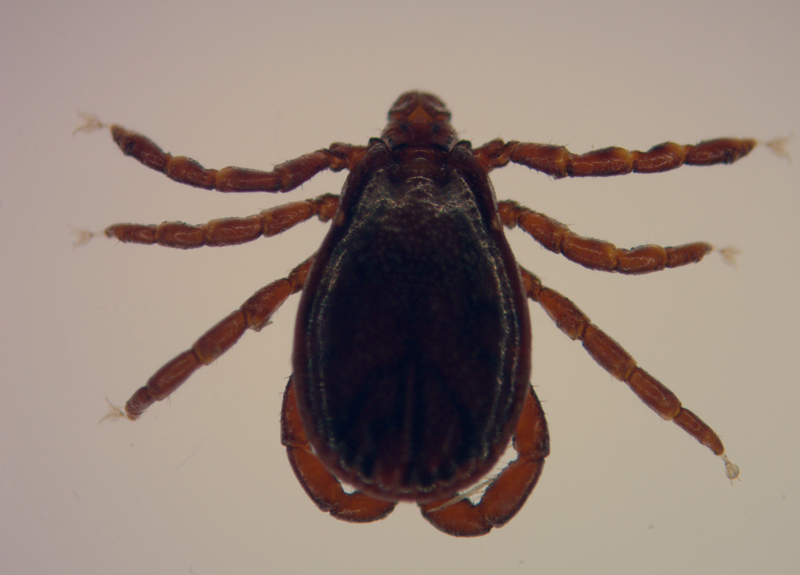Insect of the Month (July): Brown ear tick, Rhipicephalus appendiculatus
Ticks are obligate blood‐sucking arthropods found throughout most regions of the world. They infest every class of terrestrial vertebrates. Ticks and tick-borne diseases cause economic losses in Africa of close to 2 billion USD. The frequencies of several tick‐borne diseases and their geographical distribution are increasing, in part due to climatic changes, human population pressure, movement of animal hosts, and association between domestic and wildlife. One of the most devastating livestock diseases transmitted by ticks is East Coast fever, also known as theileriosis. The disease occurs in Africa, where it is transmitted by the protozoan parasite Theileria parva. The main strategy for controlling ticks is the use of highly toxic, synthetic pesticides. However, ticks have developed resistance against commonly used synthetic pesticides. icipe developed a naturally occurring, fungal-based pesticide against ticks that is environmentally friendly and that is advocated as part of a sustainable management toolkit.


